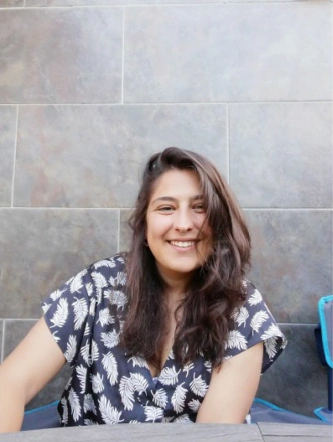As a good integrator, Laia brings together years of experience and dealings with a large number of people. Since their adolescence they have been involved as a monitor and a leader in recreational centres geared towards children, which clearly highlighted their career goals, so they ended up studying social integration. During their academic placement carried out in the association Intergramenet they were able to experience first hand the linguistic difficulties of people recently arrived from other communities and cultures to Catalonia, a bilingual place and with a complicated vocabulary even for natives. This fact had posed new challenges which include the facilitation of learning of the language for situations in daily life, speeding up the inclusion of this group in their new home. To this end Laia has developed a very interesting project geared specifically towards the creation of a bond and a space free from judgment regarding fears, barriers and taboos which can come out of the circumstances which these people find themselves in.
Laia was selected for the project “European Youth at the frontlines of active citizenship: A Roadmap towards a collective South-North-East-West Momentum” organized by Volunteers Centre Skopje and supported by European Commission due to Erasmus+ European Youth Together programme.

Firstly we would like to know what motivated you to think up this project?
– After being able to observe and carry out various catalan language courses for citizens recently arrived from various origins during three years of experience, I observed that their effectiveness wasn’t hotly debated, because in the majority of cases, these citizens usually accessed and carried out these courses only to obtain the necessary language certificate to obtain permanent residency, but it didn’t really work out how they had planned it, which was the learning of the language for it’s use in daily life.
How do you plan to turn the situation around to achieve this goal?
– Mostly I have been able to observe that more often than not these people don’t find in the session that we offer, a safe space, where they can be free from judgment. To this end at an early stage, we propose a project based on a 4 month course with students of similar knowledge levels, geared towards people older than 25, which will focus on the point of view of language geared towards the everyday.
Where will the course be taught?
– Initially it is planned to be carried out at the association’s premises. Afterwards if the pilot is successful, the idea would be to start to evolve the project and involve the above noted pupils inside other organizations, community centres, neighborhood or school councils and other spaces which encourage inclusion in a more direct way.
When would the project be developed?
– As I have previously mentioned, it’s a project split up into 4 month blocks, and the idea would be to have various groups at a time. Following the associations timings per calendar year, the courses will be carried out from March to June and from September to January of the following year.
What are the main objectives of the project?
– The principal objective is to gain the trust of our students. Once this trust is gained, we will seek to teach the language, with the ultimate aim of providing them with linguistic self reliance which allow them to end up being fully integrated in their communities.
Will these course have any type of fee?
– Initially, it sets out to be a full subsidised course, but we are thinking about stipulating a token amount to be able to achieve the loyalty of the students of the course, since on many occasions with courses being free of charge it causes an avalanche of requests but they usually end up with less than half of the participants than there are at the start of the course.
Laia Cuadro Segarra

